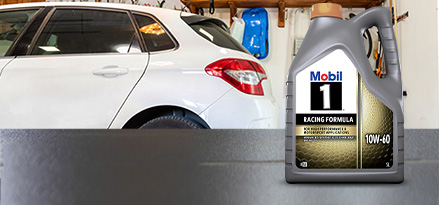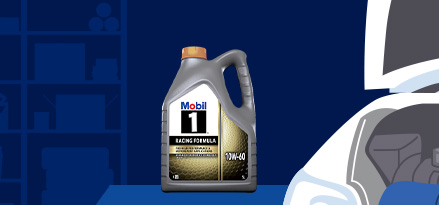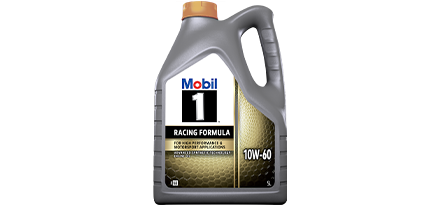Your engine oil keeps all the parts of your engine lubricated to reduce friction and prevent any damage to your engine. However, different engine oils have different efficiency and fluidity at high and low temperatures. You can tell a lot about an engine oil’s performance at different temperatures by its viscosity grade.
A viscosity grade has two parts to it, with the whole grade looking like ‘XW-XX’, e.g. 10W-60. The ‘W’ stands for winter, and the numbers relate to engine oil performance in high and low temperatures.
- The first number before the W is for the oil’s flow at low temperatures. Lower numbers here mean the oil will thicken less during cold weather.
- The two numbers after the W relate to how resistant the oil is to thinning at high temperatures over 100 degrees Celsius.
Modern engines benefit more from lower grade viscosities as they let your engine oil perform more efficiently and help improve your fuel economy. Older vehicles may require higher grade viscosity.

10W-60 engine oil
For older vehicles, or cars that put extreme pressure on the engine, 10W-60 engine oil can ensure a high performance in any temperature. This hardworking oil can flow like a SAE 10W weight oil in colder, start-up temperatures, while performing at a SAE 60 weight oil level when the engine heats up. Mobil 1™ 10W-60 engine oil is designed to provide protection in older vehicles and can also be suitable for high-performance cars too.
10W-60 synthetic engine oil
-

Mobil 1™
Our advanced range of synthetic technology engine oils helps provide outstanding engine protection against wear. Nothing works harder for your car.
More about Mobil 1™ -

Mobil Super™
Mobil Super™ offers a range of synthetic, semi-synthetic and conventional oils providing different levels of protection to match the conditions you face, whilst always ensuring you can drive with full confidence.
More about Mobil Super™




